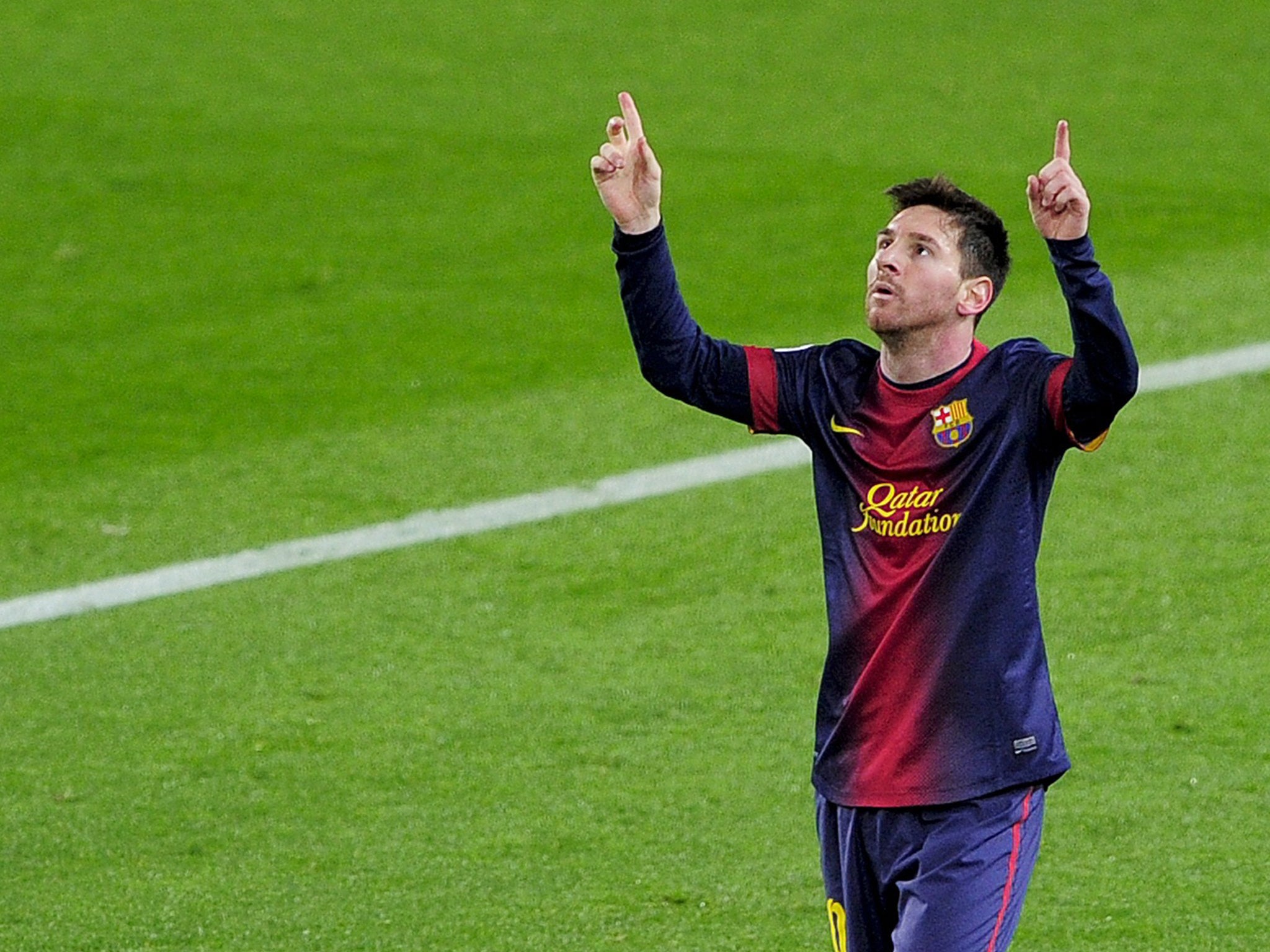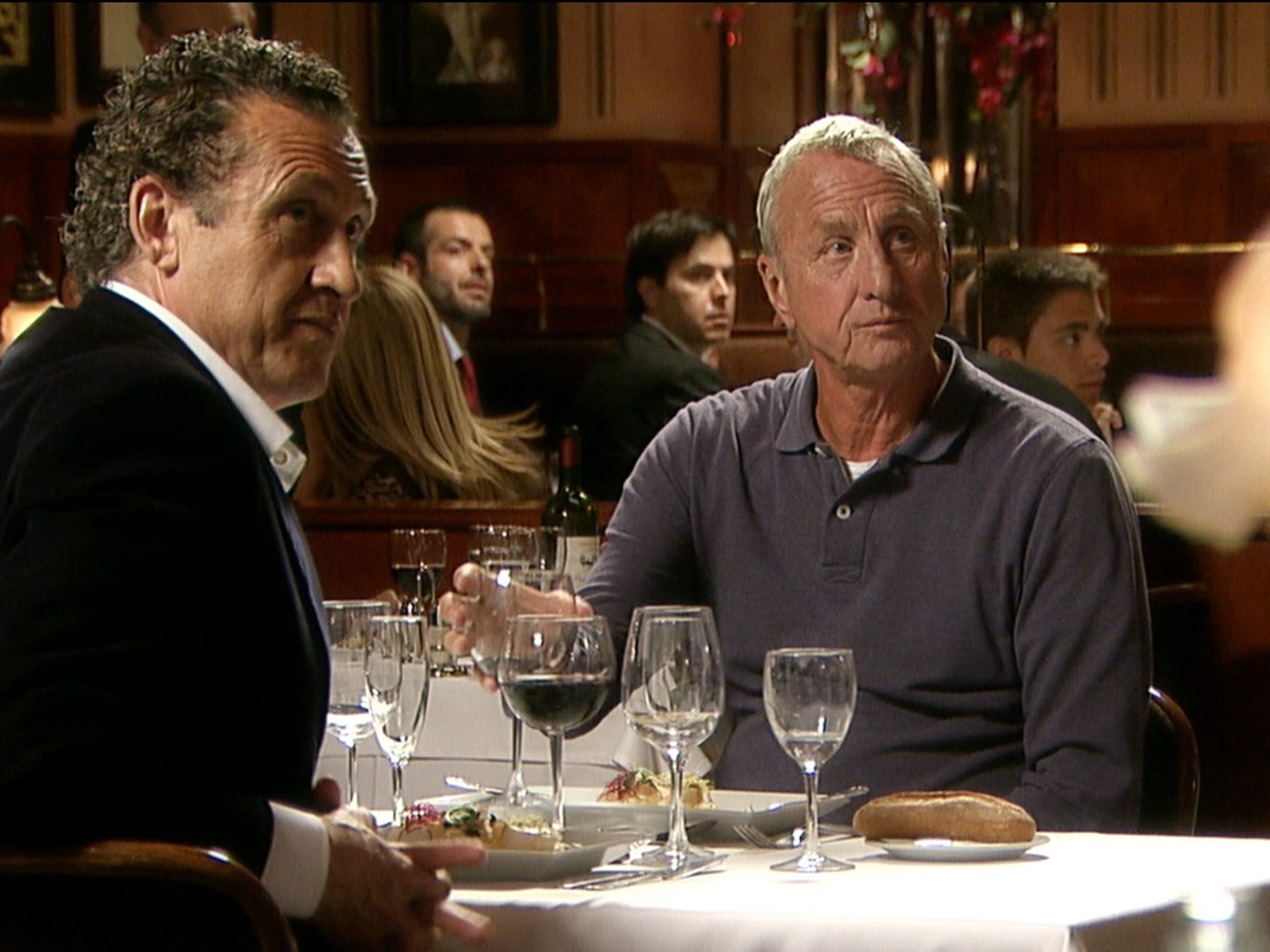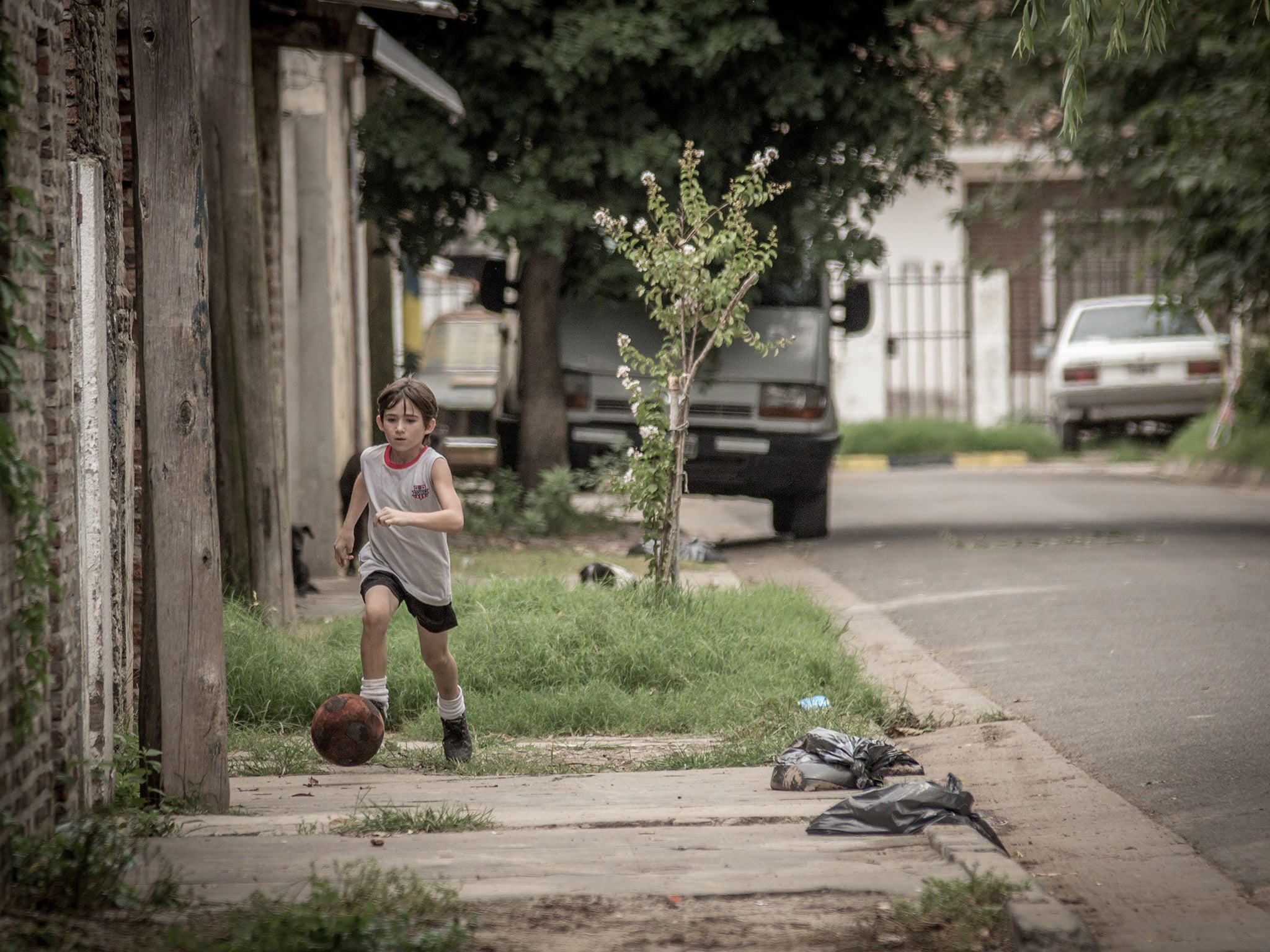Lionel Messi movie: How do you accurately portray the magic of the world's greatest footballer?
Alex de la Iglesia didn't even need the man himself for his new film. Instead, he captured the passion of a dinner of sporting legends discussing his genius

So what makes the little man tick? When the Spanish director Alex de la Iglesia was asked to make a documentary about Argentinian and Barcelona footballer Lionel Messi, he decided to look for what he calls the "rosebud" moment. If he searched hard enough, De la Iglesia was certain, he could discover just why Messi had pushed himself to become one of the greatest footballers of his age. When he was researching and making the film (which premiered at the Venice Festival earlier this month), De la Iglesia was thinking all the time about the boy with the sledge who grows up to become the all-powerful media magnate in Orson Welles' Citizen Kane.
De la Iglesia wasn't much interested in football. His films – The Day of the Beast, Perdita Durango – have tended to be outrageous comic-book fantasies full of sex, violence and very dark humour. Nonetheless, when the Messi project was proposed by Mediapro, he was intrigued. Part of the fascination was the air of mystery that surrounds Messi. The footballer doesn't give many interviews. Off the field, he is a guarded, shy and private figure, who, as the director says, "is always in a bubble".
"I said, "OK, yes,'" De la Iglesia recalls of his reaction when the project was proposed. "He (Messi) was so different to me."
De la Iglesia was also fascinated by the way that (in his view at least) Messi polarises opinion in spite of his astonishing ability. "Half of the world loves Messi. The other half hates Messi. There is not something in the middle."
In order to "explain" Messi, De la Iglesia decided to canvas the opinions of some of the footballers and coaches who've worked with the player. His screenwriter was Jorge Valdano, the outspoken former general manager of Real Madrid, recently in the news for his withering attacks on the egotism and petty-mindedness of current Chelsea manager José Mourinho (whom he likens to Salieri in Amadeus.)
The figures De la Iglesia invited to participate in a special dinner at which they would discuss the riddle of Messi included Dutch legend (and former Barcelona player and manager) Johan Cruyff and World Cup-winning Argentina manager, César Luis Menotti. Also present were some of Messi's current teammates, among them Andrés Iniesta and Gerard Piqué. Other participants include Argentine and Catalonian journalists, some of the player's old friends from school and kindergarten and even the doctor who looked after him when he was a kid. The one disappointment is that he wasn't able to reach Maradona (who asked for a $1m to appear in the film and therefore features only fleetingly in archive footage.)
The documentary gives us the illusion we are watching a single event. In fact, the film edits together two separate dinners at restaurants in Buenos Aires and Barcelona.
"It is beautiful to do it in this way," the director explains. "The second point is that it was good for the movie because the people are more relaxed when they are eating. They are drinking wine… the cameras were really far from the table."

The idea of the dinner came to him from Woody Allen's Broadway Danny Rose in which a group of old-time comedians reminisce about a two-bit hustler and talent manager called Danny Rose – and he comes alive in their anecdotes. De la Iglesia didn't "push" his interviewees into discussing specific issues. Their only instructions were to eat, drink and talk about Messi.

Watch Apple TV+ free for 7 day
New subscribers only. £8.99/mo. after free trial. Plan auto-renews until cancelled.
ADVERTISEMENT. If you sign up to this service we will earn commission. This revenue helps to fund journalism across The Independent.

Watch Apple TV+ free for 7 day
New subscribers only. £8.99/mo. after free trial. Plan auto-renews until cancelled.
ADVERTISEMENT. If you sign up to this service we will earn commission. This revenue helps to fund journalism across The Independent.
One of De la Iglesia's most singular achievements is to have assembled a room full of egotistical football giants – and to have persuaded them to talk about somebody other than themselves.
Menotti, in particular, is poetic and impassioned in his words about Messi. "He plays deep, he plays wide, he plays wherever he likes, because he plays like the gods!" the former Argentina boss exclaims at one stage.
Cruyff gives thanks to Messi for moving the conversation on. "Thank God Messi exists. Imagine, if he wasn't around we'd still have to be talking about Maradona," the Dutch maestro points out.
Teammates remember how carefully his talent was nurtured by the Barcelona manager Frank Rijkaard and how the team's Brazilian superstar Ronaldinho treated Messi as a little brother rather than a rival – unselfishly applauding his genius. "How beautiful it would be to become Messi for five seconds, just to see what it feels like," his friend and teammate Javier Mascherano suggests (seemingly without irony.)
One issue raised over the dinner conversations is how Messi, who has been based in Spain since he was a teenager, always sometimes seemed to play better for Barcelona than for Argentina. The diners, though, make it very clear that he is fiercely patriotic. Menotti insists his home town of Rosario, a place where "football is the be-all and end-all", was the perfect crucible for his talent. We also hear the story of how, when the player was still very young, a Messi fan gave an Argentina youth coach a video of his exploits. The coach wasn't even going to watch the tape but when he finally did so, was immediately awe-struck and went to huge lengths to make sure that Messi wasn't poached by the Spaniards.
Messi himself didn't participate but has now seen the film and given it his blessing. "We did it totally independently of the family," the director recalls. "I wanted to be free. I didn't want to involve the family because I needed my own vision."
Alongside the footage of the dinner, there is old video material that De la Iglesia and his team discovered of Messi as a kid playing in junior teams in Rosario. There are also reconstructions in which an actor plays the young footballer. In one dramatic incident, when he is nine or 10 and already his team's star player, he is locked in the bathroom when the door handle breaks. He has to climb out through a high window and run to his match. Arriving well into the second half, he inevitably salvages the victory.
These reconstructions were filmed after the dinner and were based directly on the reminiscences of the player's close friends and colleagues.
Ask De la Iglesia how he managed to find the old footage of Messi scoring goals as a child, long before he had even joined his first important club Newell's Old Boys, and he says he simply asked around in Rosario. Old teammates and their parents had kept the videos.

At the end of the documentary, you don't have a particular sense of Messi's personality – but you gain a new appreciation of his stubbornness and dedication as well as of his football genius. He is a pint-sized prodigy who had to inject himself with growth hormone from a very early age. (De La Iglesia shows reconstructions of the player in the dressing room, jabbing his leg with a huge syringe.)
Eventually, De la Iglesia thinks he did stumble on the revelatory moment the documentary needed. One of Messi's friends talked about going on a very long walk with the player when he was still a teenager to visit the cemetery at the other side of town where his grandmother was buried. The grandmother, it turns out, was the key formative influence on the young Messi. She was the one who persuaded coaches to allow him to play for Grandoli Football Club when he was a tiny boy of four or five and she was always his most fervent fan. Her death, when he was only 11, in 1998, devastated him. Whenever he scores and stares skyw ard with his fingers pointing at the heavens, it is to her he is beckoning. She is still the one to whom he dedicates all his goals.
"At the end, the rosebud is his grandmother," De la Iglesia says of the little old lady who played the biggest part in the nurturing of a football genius – but whose contribution to the Lionel Messi story is still largely overlooked.
'Messi' is expected to be released in British cinemas early next year
Join our commenting forum
Join thought-provoking conversations, follow other Independent readers and see their replies
Comments